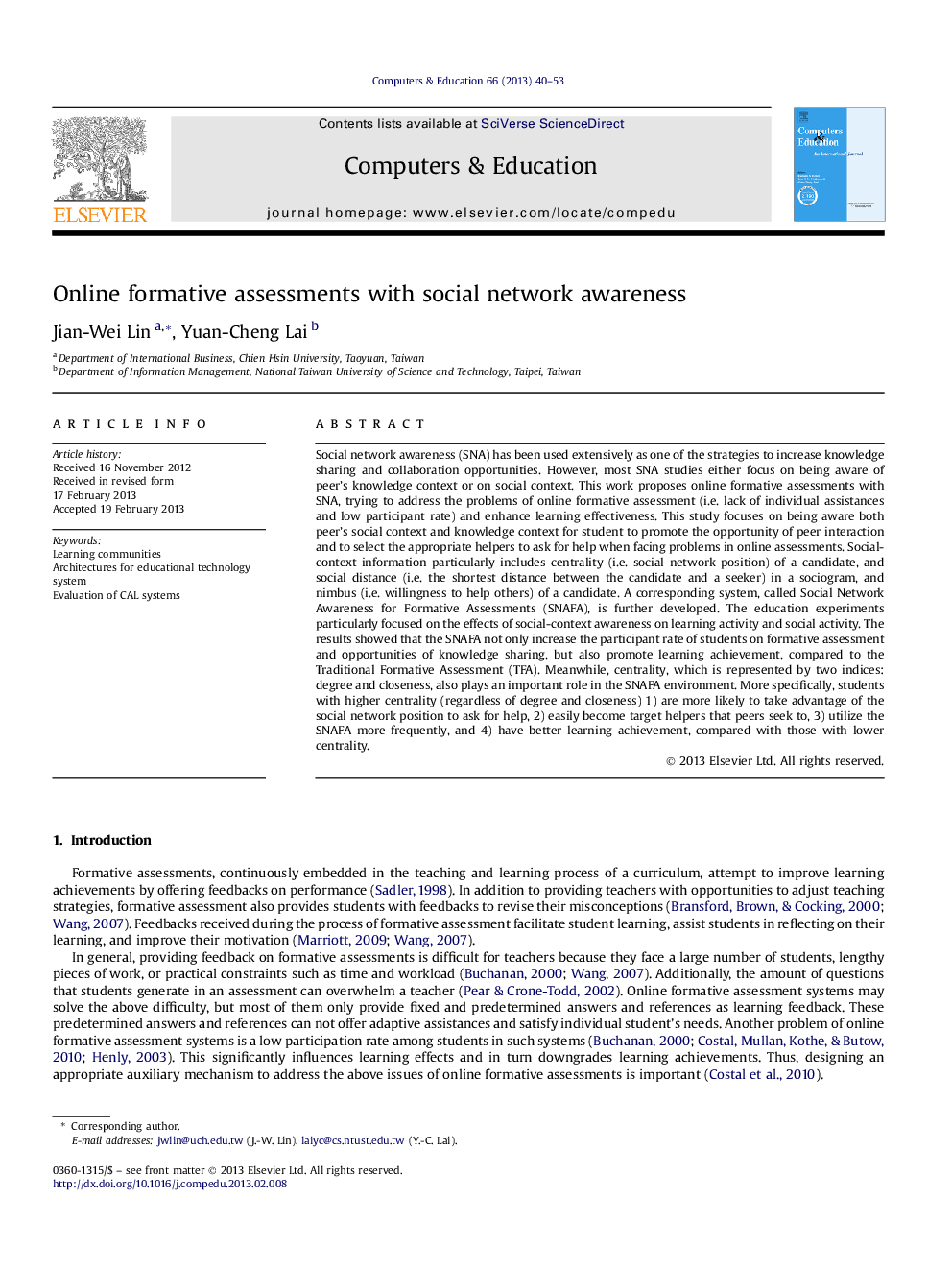| Article ID | Journal | Published Year | Pages | File Type |
|---|---|---|---|---|
| 348515 | Computers & Education | 2013 | 14 Pages |
Social network awareness (SNA) has been used extensively as one of the strategies to increase knowledge sharing and collaboration opportunities. However, most SNA studies either focus on being aware of peer's knowledge context or on social context. This work proposes online formative assessments with SNA, trying to address the problems of online formative assessment (i.e. lack of individual assistances and low participant rate) and enhance learning effectiveness. This study focuses on being aware both peer's social context and knowledge context for student to promote the opportunity of peer interaction and to select the appropriate helpers to ask for help when facing problems in online assessments. Social-context information particularly includes centrality (i.e. social network position) of a candidate, and social distance (i.e. the shortest distance between the candidate and a seeker) in a sociogram, and nimbus (i.e. willingness to help others) of a candidate. A corresponding system, called Social Network Awareness for Formative Assessments (SNAFA), is further developed. The education experiments particularly focused on the effects of social-context awareness on learning activity and social activity. The results showed that the SNAFA not only increase the participant rate of students on formative assessment and opportunities of knowledge sharing, but also promote learning achievement, compared to the Traditional Formative Assessment (TFA). Meanwhile, centrality, which is represented by two indices: degree and closeness, also plays an important role in the SNAFA environment. More specifically, students with higher centrality (regardless of degree and closeness) 1) are more likely to take advantage of the social network position to ask for help, 2) easily become target helpers that peers seek to, 3) utilize the SNAFA more frequently, and 4) have better learning achievement, compared with those with lower centrality.
► This work proposes online formative assessments with social network awareness. ► The developed system, called SNAFA, promotes learning achievement. ► Within the SNAFA, students with high centrality are more likely to ask for help. ► Students with high centrality easily become target helpers that peers seek to. ► Such students frequently utilize the SNAFA and have better learning achievement.
